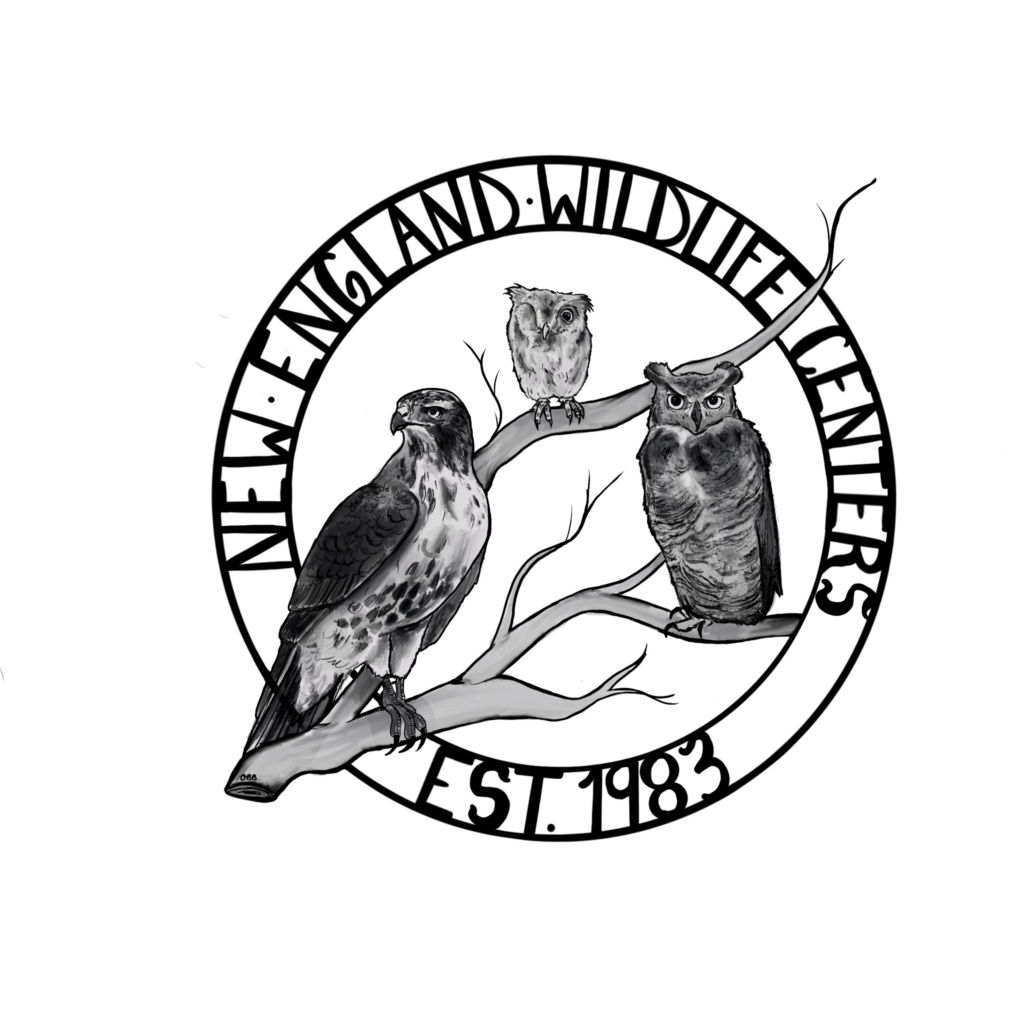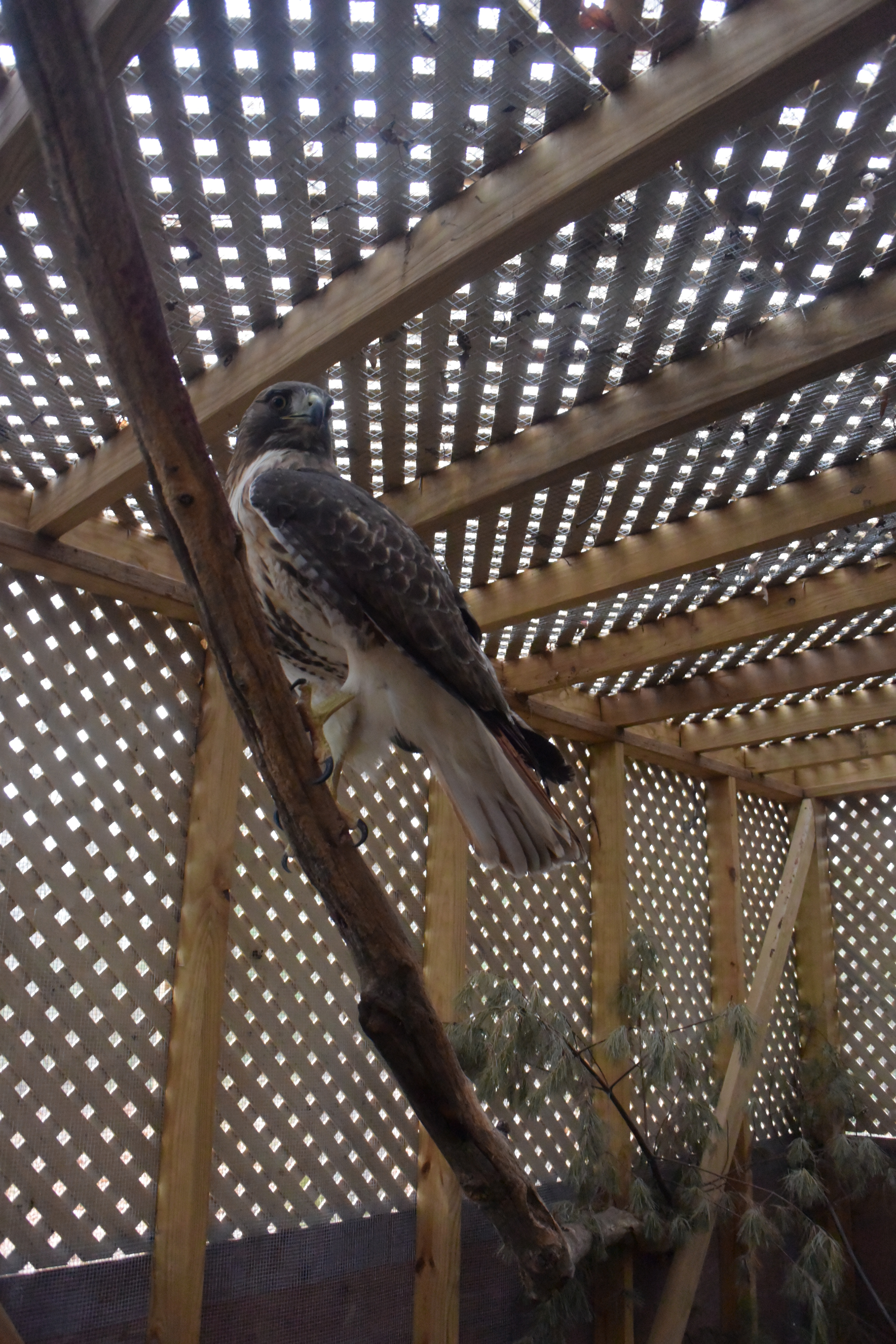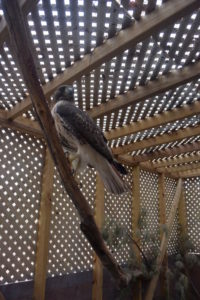This Red-Tailed Hawk is on the last stage of his rehabilitation after battling a deadly case of rodenticide toxicosis, caused by toxic levels of rat poisoning within the body. Here at New England Wildlife Center, we commonly see this type of illness within our bird of prey populations, with a majority showing sub-clinical levels of the poison within their blood. This is due to the fact that hawks, owls, coyotes and other carnivores frequently hunt small rodents and other animals considered to be pests by homeowners and commercial businesses who chose rat poison traps to solve their infestation issues.This is a big problem, as current generations of rat poison are both strong and persistent. It can remain within the rodent’s body long after death, and will easily transfer to any predator who consumes the rodent. But there is hope!
In 2017 we expect many to be admitted to our hospital suffering from this illness. Treatment requires months of work, a daily regiment of vitamin K treatments, and weeks of physical therapy to successfully prepare these birds of prey for release. We would like to thank the Humane Society of the United States and the Summerlee Foundation for their generous $4,000 donation to fund the support of our rodenticide toxicosis patients. The care of wildlife is a community issue, that needs a community solution. Its backings like these that allow us to continue to provide this much needed work for all of New England’s wildlife.



